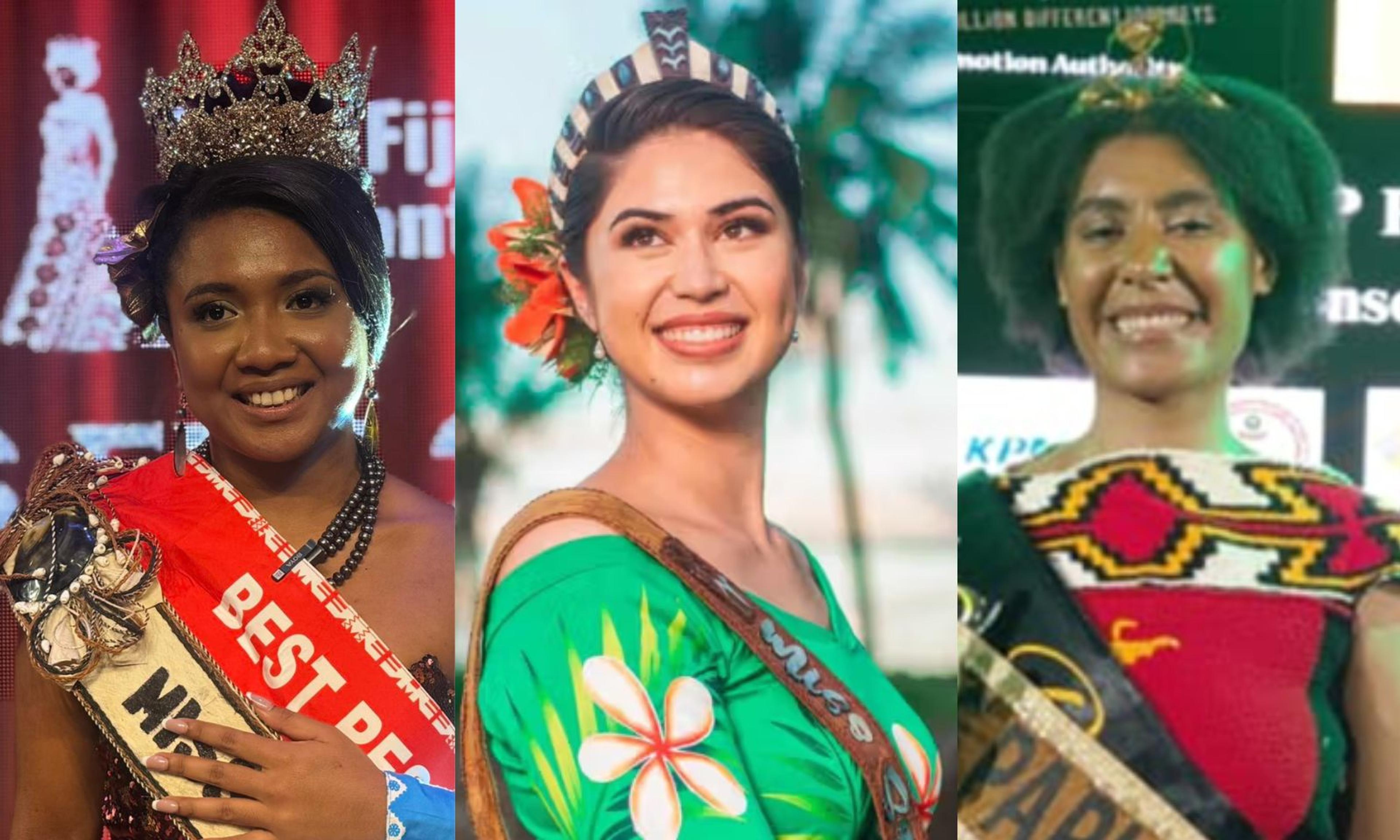

Due to the influx of people at the Māori King's tangi the local community in Ngāruawāhia pitched in with food and volunteers.
Photo/PMN News/Sariah Magaoa
‘It’s all a big chip in’: Feeding the people at Kiingi Tuheitia’s tangi
PMN News journalist Atutahi Potaka-Dewes takes us behind the scenes to ‘the dungeon and kitchen’ of Tuurangawaewae Marae.

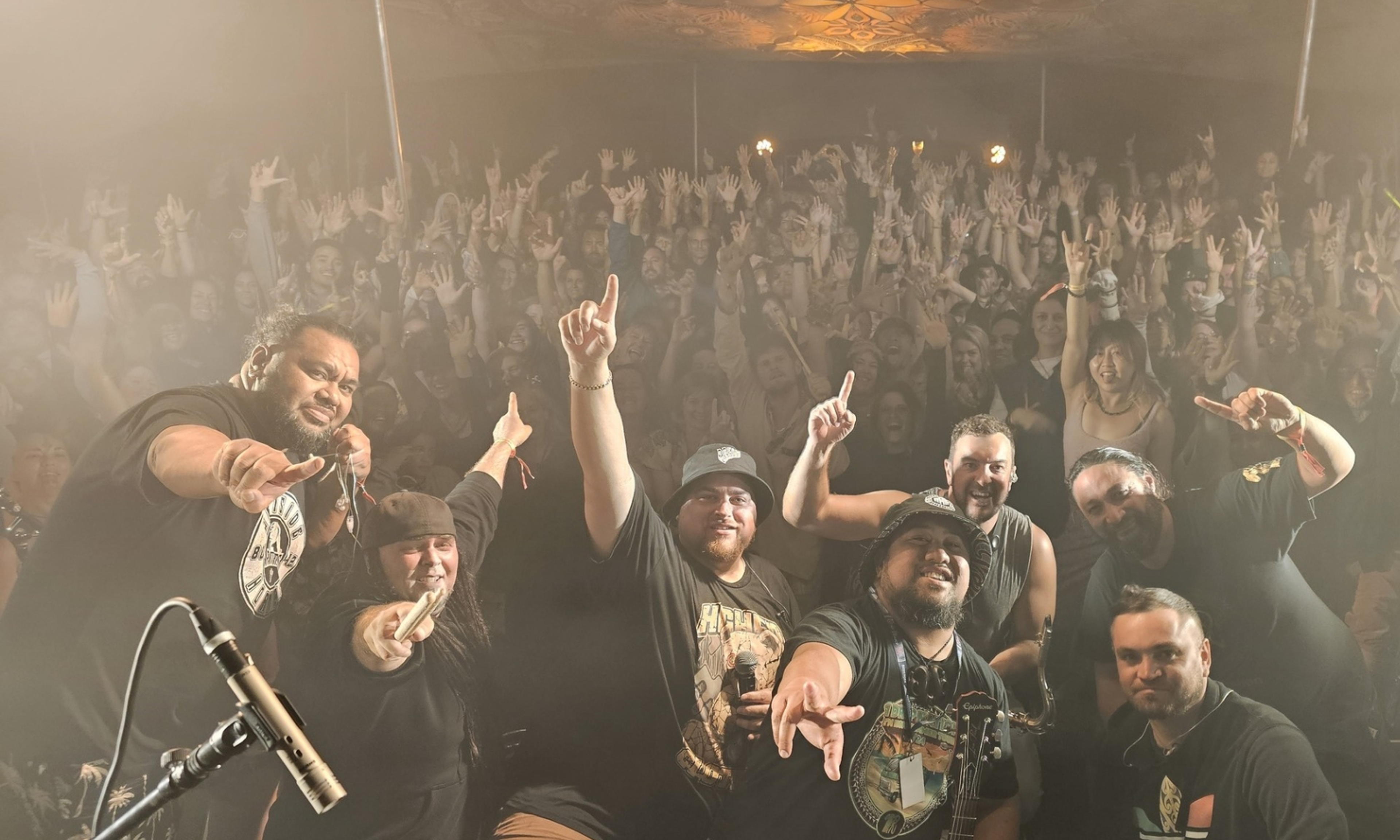
Ōtautahi's 1 Drop Nation celebrates brotherhood and legacy in new music

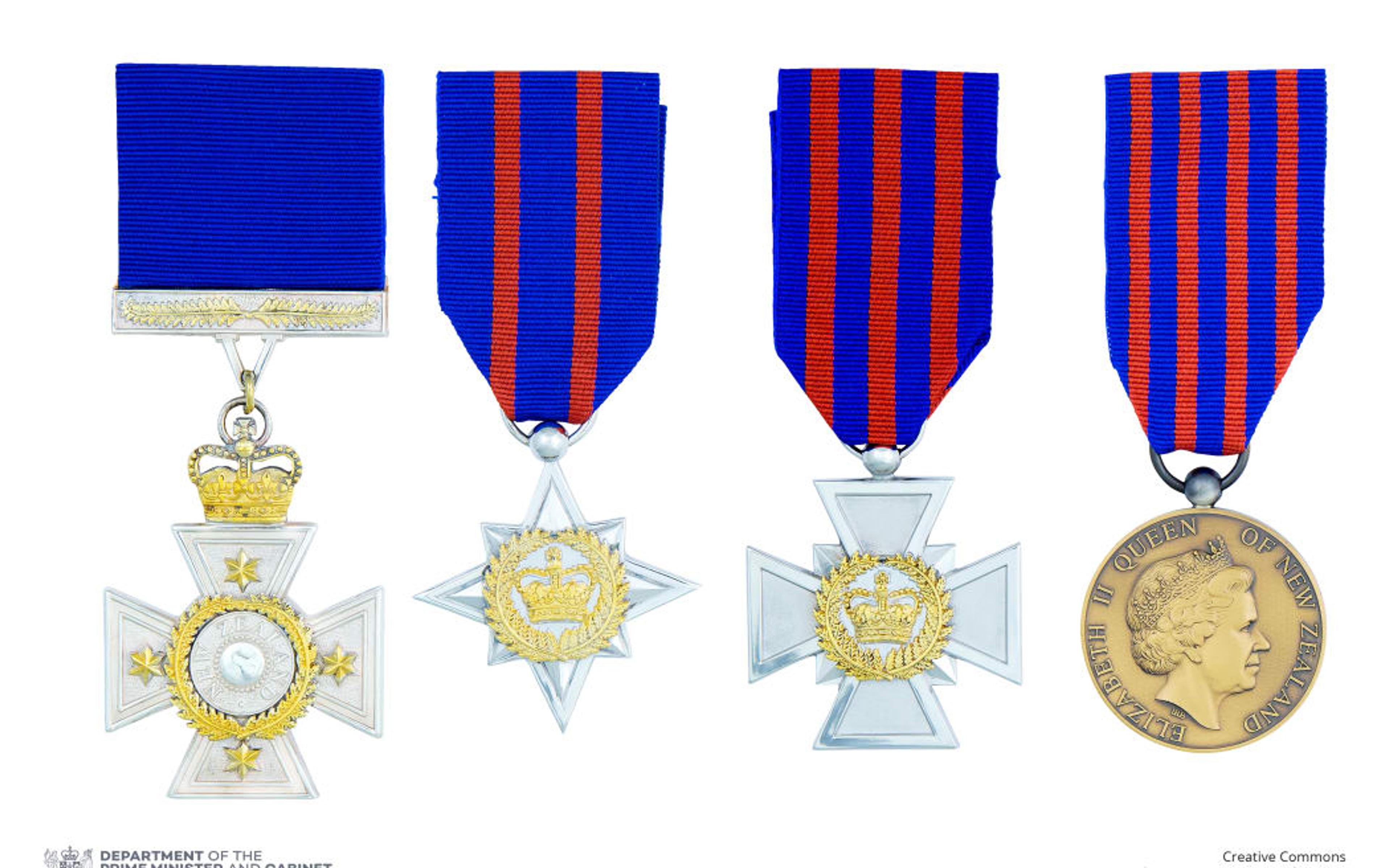

Lineup for Miss Pacific almost complete after Fiji, PNG crown queens

Ōtautahi's 1 Drop Nation celebrates brotherhood and legacy in new music


When the call goes out to the iwi that a death has occurred, marae workers and volunteers spring into action and ready the space for the arrival of family and friends.
That’s what happened when thousands of mourners descended upon Tuurangawaewae Marae to pay their respects to the late Māori King Tuheitia Pootatau Te Wherowhero VII. Ringawera worked hard to make sure people never left hungry.
Handyman Harley Muru, a kaimahi in Kimiora wharekai, told PMN News the passing of Kiingi Tuheitia caught them off guard, especially because they were in celebration mode the week prior.
“We were unprepared for this, you know. We just came off our Koroneihana and then a week later we came into a tangi.”
There are countless people and groups behind-the-scenes who have pitched in to support the caterers of the tangi week, including marae from around Ngāruawāhia, local whānau, hapū, and iwi across the motu, catering companies, dairy organisation Fonterra, and the New Zealand Defence Force.
Muru said the “koha have been amazing”.
“All the Tainui marae, they’ve just been giving koha. Beef, vegetables, they’ve been doing baking, all the breads. ‘Coz we can’t possibly do everything here so other marae are chipping in.
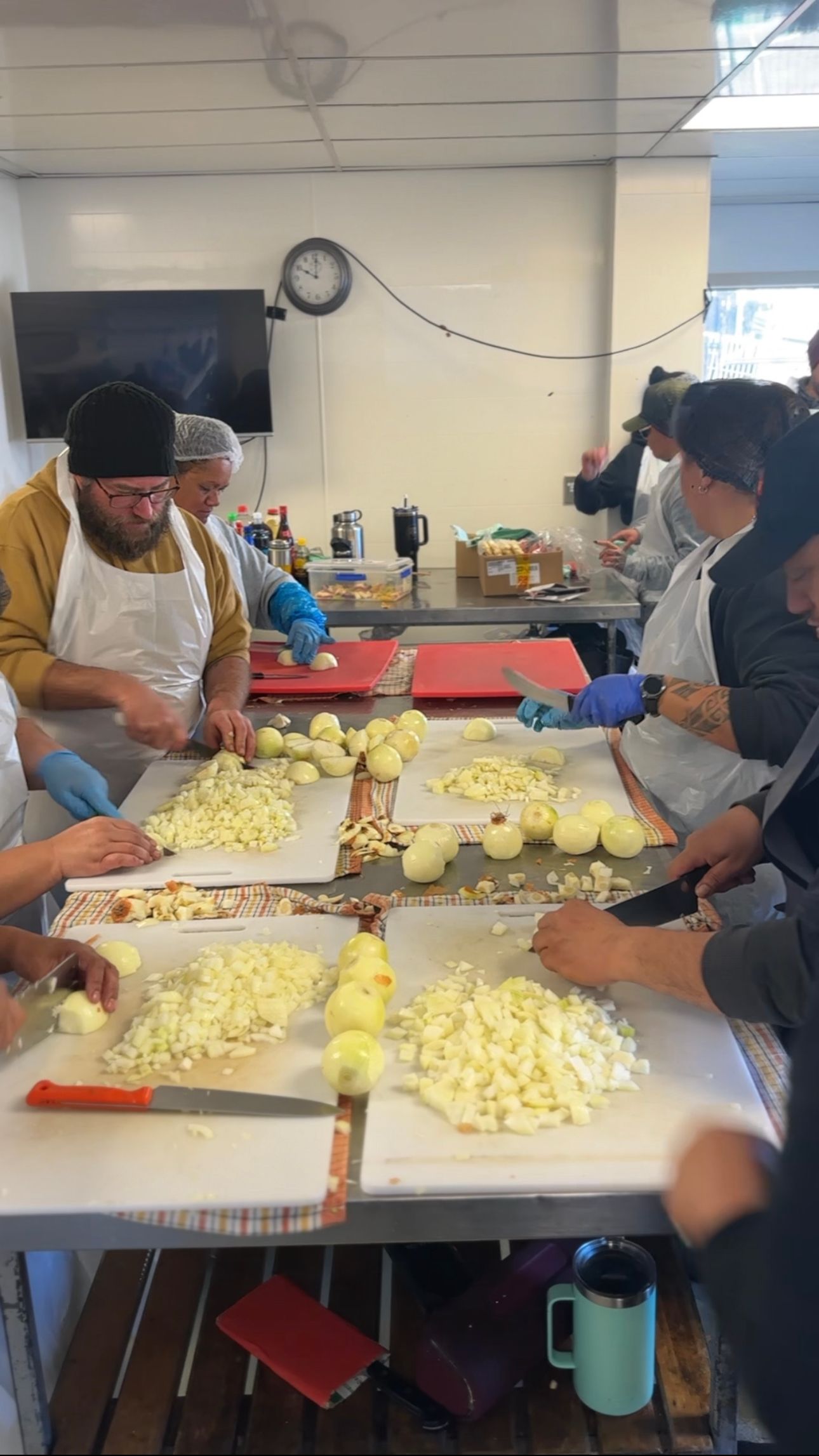
Photo/PMN News/Sariah Magaoa
“It’s all just a big chip in, you know, whanaungatanga.”
Ensuring the masses are fed is no easy feat but Kimiora, which opened in 1973, is a well oiled machine and marae jobs have been passed down through the generations.
Muru’s among 50 or so kaimahi in “the dungeon” cutting, peeling, and preparing meat, veges, and sauces before they are sent upstairs for cooking via a lift.

Photo/PMN News/Sariah Magaoa
Up in the kitchen is a hive in itself, hot ovens, bubbling water, and huge pots, it’s also where kai rolls out to the dining hall and tables are set and served by rangatahi.
Then there are the dishwashers, hunter/gatherers, the hāngī pit crew, the truck loaders, the scrap bin owners, and most importantly the “good communicators”. All functioning harmoniously like clockwork.
Muru follows a long whānau tradition of working the dungeon and says, “It’s a big process” but everyone is proudly doing their bit and playing their role.
“We were the little kids that were running around here when our grandparents and parents were doing this stuff so we’re just carrying on the traditions of our people of Tuurangawaewae, yeah, it’s pretty awesome.”
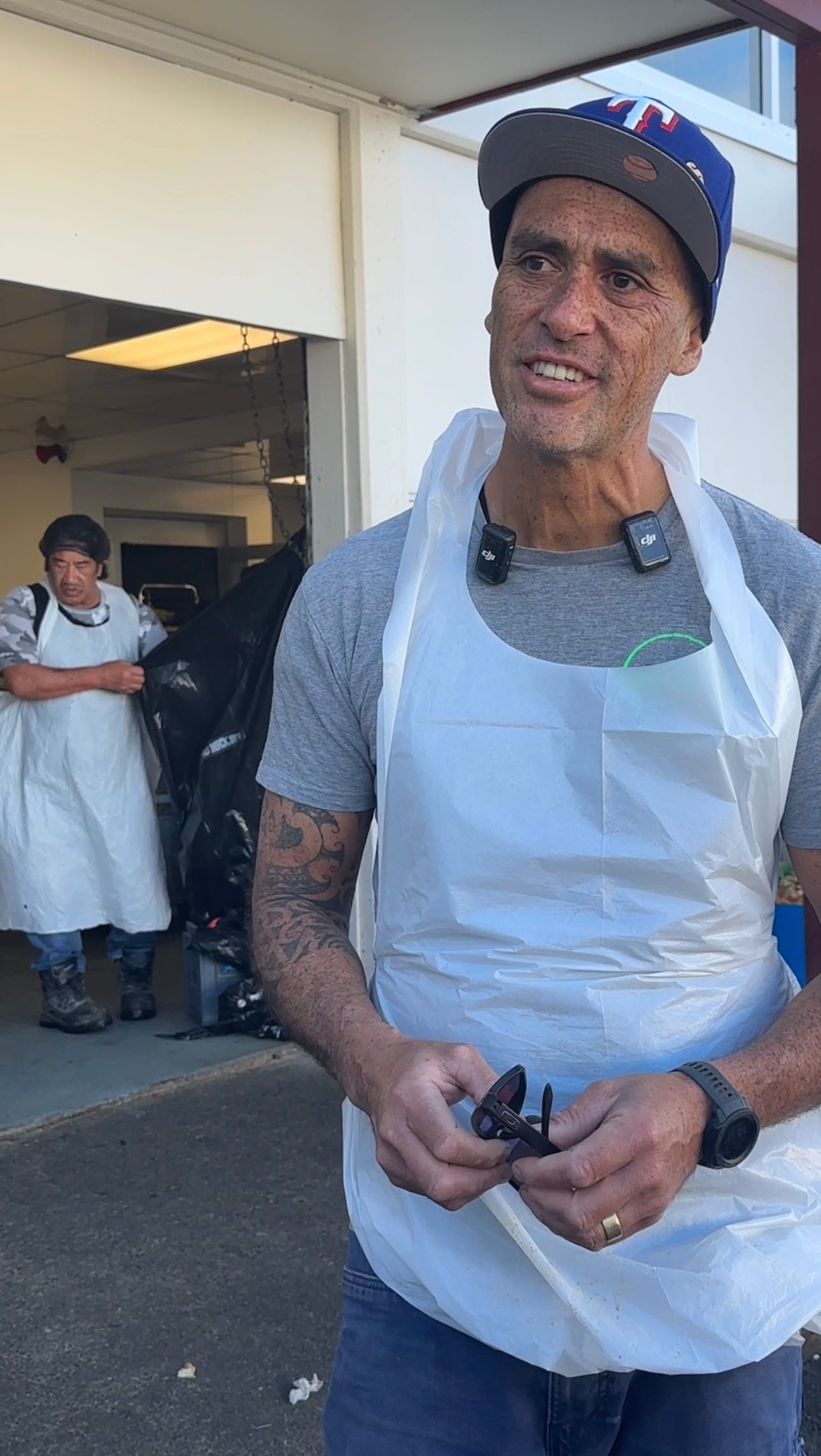
Harley Muru is a business owner living in Ragland but always answers when home calls. Photo/PMN News/Sariah Magaoa
While Tainui are used to hosting big numbers, these have been back-to-back massive events for the tribe, and doing this comes with its challenges where many have had to juggle mahi for income versus mahi for the iwi.
And having to constantly explain the significance of the Kiingitanga is like a never-ending hurdle race for those who work in non-Māori spaces in particular.
Muru says although sacrifices often need to be made, it is a “gift of aroha”.
“A lot of the guys had just done a week with the Koroneihana and we’ve had to take another week off mahi. It gets a little bit stressful with our family lives and that also but everyone’s just sort of loving each other.
“We don’t expect no, ‘oh, awesome job!’ or like gratification for it. We just understand.
“Just living our legacy that our parents and our grandparents started for us.”
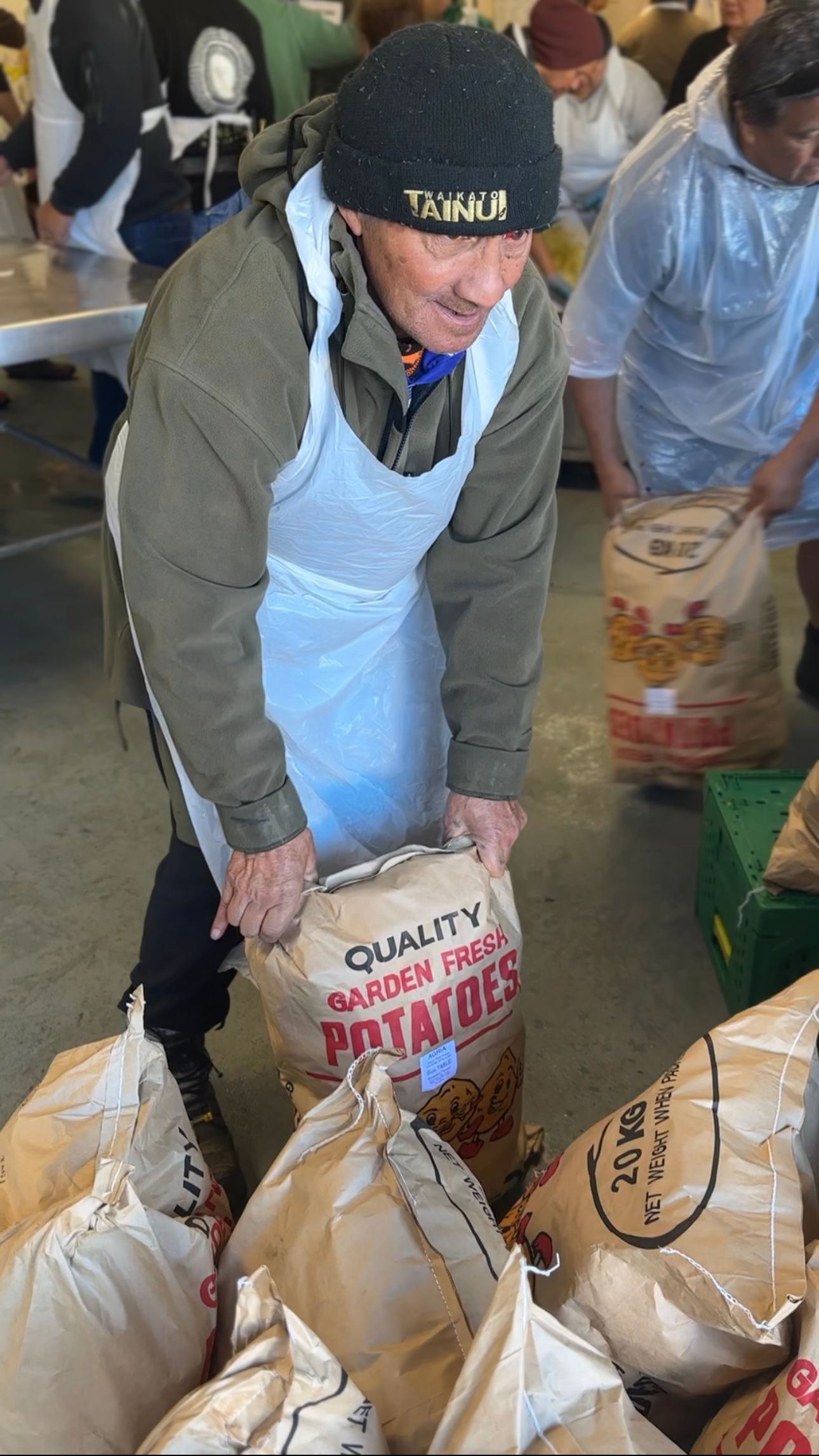
Photo/PMN News/Sariah Magaoa
Glossary
Tainui - tribal waka of the Waikato region in central North Island
Tuurangawaewae Marae - Significant marae located in the small town of Ngāruawāhia
Kimiora wharekai - dining hall of Tuurangawaewae
ringawera - kitchen hand
kaimahi - worker
Koroneihana - coronation
tangihanga (tangi) - funeral
koha - gift/offering
mahi - work